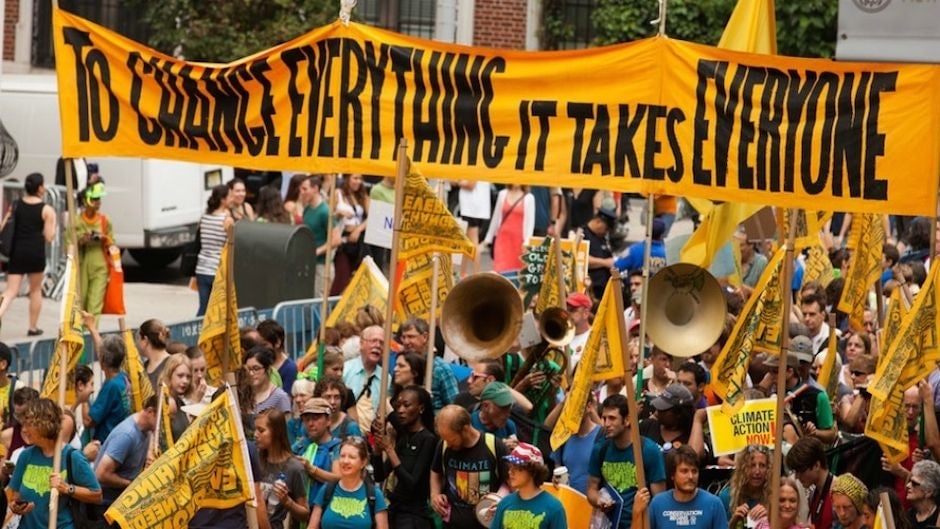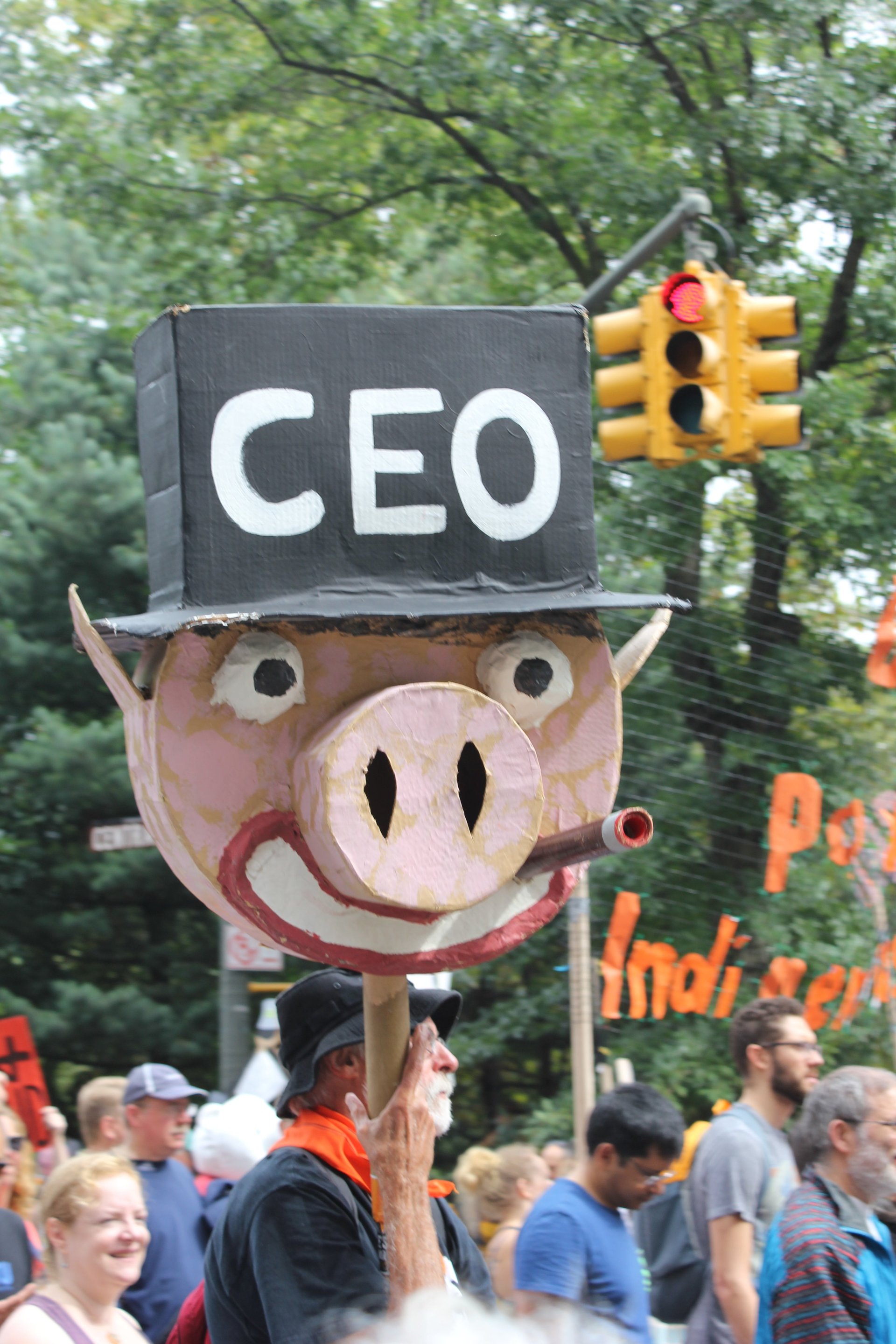These companies announced their green initiatives the only week anyone would notice
Between the People’s Climate March, which drew huge crowds in New York on Sept. 21, and the United Nations climate summit that kicked off two days later, a number of large US firms have been inspired to trot out initiatives this week related to their sustainability efforts.


Between the People’s Climate March, which drew huge crowds in New York on Sept. 21, and the United Nations climate summit that kicked off two days later, a number of large US firms have been inspired to trot out initiatives this week related to their sustainability efforts.
While the economic costs of climate change have been outlined, environmental issues still have a way of being presented as a conundrum for businesses, with making money and taking steps to protect the planet seen as goals that are at odds with one another. It isn’t impossible to achieve both, but often times, there are tradeoffs. Take FreshDirect, a New York grocery delivery service. Jeremy Quittner of Inc. reports that despite the company’s pledge to being “green” by delivering during eco-friendly hours, using recyclable boxes, and sourcing food locally, its plan to move its fleet of diesel delivery trucks to the South Bronx from Long Island is causing a stir among local environmentalist groups; the South Bronx has one of the highest asthma rates in the country. On the other hand, the relocation could bring more jobs to the area.
FreshDirect was targeted during the People’s Climate March, where some demonstrators specifically protested the grocery retailer’s planned relocation. (Many others protested big corporations and corporate executives in general.)

Undeterred by the risk of being called a strange bedfellow, some big companies have used the recent attention on climate-change issues as an opportunity to voice their interest in polluting less or doing more on behalf of the planet. Here are a few of the more notable examples. But do take these announcements with a grain of salt; some of these places don’t have the best rep with environmentalists.
The Rockefellers
Heirs to the Rockefeller family, which made its legendary fortune in the oil business, swore off fossil fuel investments and pledged to reinvest in cleaner energy. The Rockefeller Brothers Fund announced the move as part of a $50 billion divestment campaign involving multiple philanthropies, cities, religious groups, universities, and healthcare interests.
Goodyear
The tire producer announced a plan this week to make use of rice husk waste otherwise destined for landfills. The ash leftover from burnt rice husks works as an “environmentally friendly” source of silica, which increases tire strength and traction and promotes better fuel efficiency. But rubber tires still have a long way to go on the road to green.
TD Bank
The bank said it would plant 1,100 trees in 21 US cities along the East Coast. The volunteer effort will mark the fourth annual TD Tree Days event, which is intended to expand urban forests and promote the environmental benefits of trees.
The internet search-engine giant plans to cut ties with a right-wing lobbying group, American Legislative Exchange Council. Google’s chairman, Eric Schmidt, said the company made a mistake in funding ALEC, which opposes US action on climate change. But don’t applaud Google just yet; they have been criticized by environmental activists for contributing $699,195 (pdf) to candidates for political office who deny the science of human-caused climate change.
Bank of America
CEO Brian Moynihan announced an initiative at the UN Climate Summit that seeks to raise as much as $10 billion for clean energy projects. As part of the Catalytic Investment Initiative, Bank of America will commit $1 billion in capital to help reduce the investment risk associated with sustainability projects, particularly in emerging markets, making them more attractive to a broader pool of potential investors.